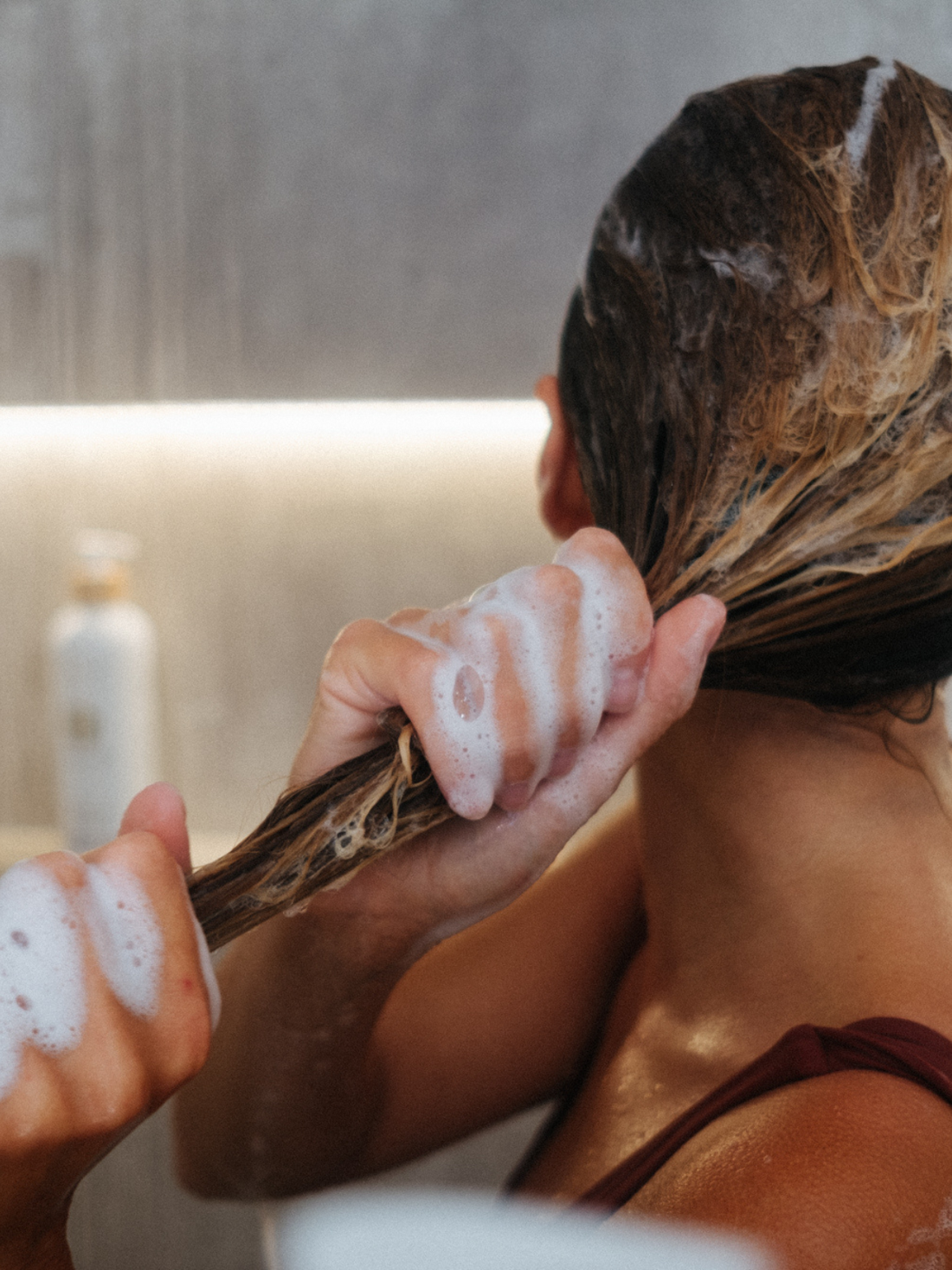Thick, healthy hair is often seen as a sign of vitality and confidence. But for many women, hair thinning and volume loss can feel discouraging — whether it’s due to stress, hormonal changes, nutrient deficiencies, or harsh haircare practices.
The good news is that with the right diet, lifestyle, and natural haircare, you can help protect and restore your hair’s strength and fullness.
What Causes Hair Thinning?
Before we dive into solutions, it helps to understand the main causes of hair thinning and loss of volume:
- Nutrient deficiencies – Lack of iron, protein, zinc, and vitamins can weaken hair growth.
- Hormonal changes – Pregnancy, menopause, and thyroid imbalances can affect hair density.
- Stress & lifestyle – High stress levels increase cortisol, which can disrupt the hair growth cycle.
- Harsh products – Sulfates, silicones, and synthetic fragrances strip hair and damage follicles.
- Over-styling – Heat tools, tight hairstyles, and chemical dyes can lead to breakage.
The key is to nourish your body from within while being gentle on your hair from the outside.
Best Foods for Hair Growth and Volume
What you eat directly impacts the health of your hair. Focus on nutrient-dense, whole foods that provide the building blocks for strong, thick strands.
1. Protein-Rich Foods
Hair is mostly made of keratin, a protein. Without enough protein, hair becomes weak and brittle.
- Grass-fed beef, chicken, eggs, beans, lentils, quinoa
2. Iron & Zinc Sources
These minerals help carry oxygen to your follicles and strengthen hair strands.
- Spinach, pumpkin seeds, oysters, red meat, chickpeas
3. Vitamin C Superfoods
Vitamin C boosts collagen (which supports hair structure) and helps your body absorb iron.
- Kakadu Plum, oranges, berries, kiwi, capsicum
4. Healthy Fats
Omega 3, 6, and 9 fatty acids hydrate the scalp and prevent dryness.
- Avocados, walnuts, flaxseed, salmon, chia seeds
5. Biotin & B Vitamins
Known as the “hair vitamins,” they support growth and thickness.
- Eggs, almonds, sunflower seeds, sweet potatoes
6. Hydrating Foods
Staying hydrated is just as important.
- Cucumbers, watermelon, leafy greens, coconut water
What to Avoid for Healthier Hair
Just as important as what you eat, is what you limit:
- Excess sugar & processed foods → Trigger inflammation and nutrient depletion.
- Alcohol → Dehydrates the scalp and weakens follicles.
- Excess caffeine → Can interfere with nutrient absorption.
- Crash diets → Starve the body of vital nutrients needed for hair growth.
Natural Practices to Improve Hair Health
Alongside diet, these habits can help you minimize hair thinning:
- Scalp massage with oils → Improves circulation and nourishes roots. Look for plant-based oils rich in Omegas 6 + 9, like Kakadu Plum Seed Oil.
- Gentle cleansing → Use sulphate-free natural shampoo and conditioner to avoid stripping oils.
- Protect from heat → Minimize blow-drying and straighteners; let your hair air-dry when possible.
- Switch to low-tox products → Harsh chemicals can irritate the scalp and damage follicles.
- Reduce stress → Yoga, meditation, and daily movement can help balance hormones and protect hair.
Final Thoughts
Thicker, fuller hair doesn’t come from one quick fix — it’s about nourishing your body, protecting your scalp, and choosing natural, low-tox products that work with your body instead of against it.
At Pure Earth, we’ve designed our natural Shampoo and Conditioner with wild botanicals like Lemon Myrtle, Emu Apple, and Geranium to gently cleanse, hydrate, and protect your hair — while avoiding the harsh chemicals that contribute to thinning and breakage.
Because true beauty isn’t about fighting against nature — it’s about working with it.

